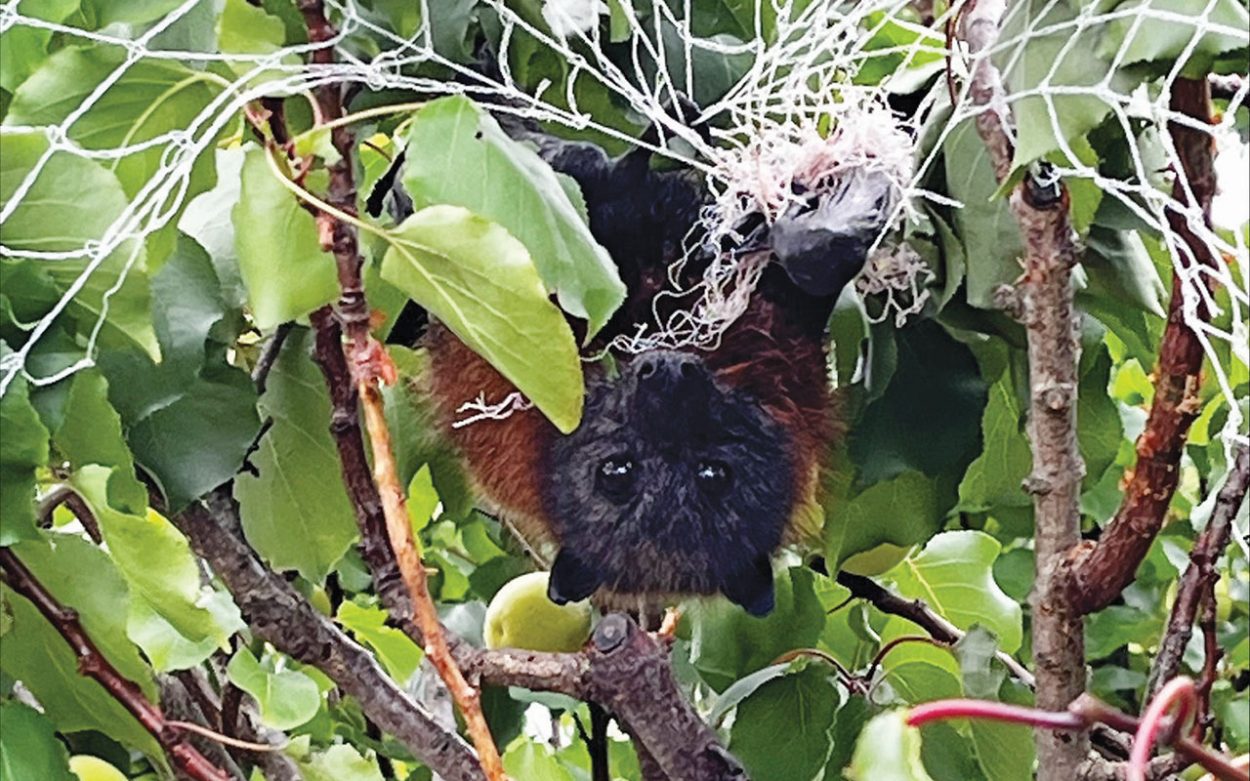WILDLIFE authorities have issued a stern warning to the community following six reports of flying foxes being entangled in illegal residential fruit netting on the Mornington Peninsula this year.
The Conservation Regulator, Zoos Victoria, RSPCA Victoria, Wildlife Victoria, and Animal Welfare Victoria have partnered to address the dangers illegal household netting pose to wildlife, especially native bat species.
They are also reminding household growers to use safe, compliant fruit tree netting.
Since 1 September 2021, it has been illegal in Victoria to use or sell household fruit tree netting with a mesh size bigger than 5mm by 5mm, as larger mesh netting is more likely to entangle, distress, and seriously injure or kill animals.
In the first six months of this year, Wildlife Victoria recorded more than 110 cases state-wide involving flying-foxes caught in illegal household netting. Six of those reports came from varying suburbs across the peninsula including Mornington, Dromana, Rye, Somerville, Rosebud, and Balnarring.
While Wildlife Victoria said this may suggested a low-risk issue to the peninsula that was reported to the Wildlife Victoria’s Emergency Response Service, the actual figure was likely to be much higher with other incidents reported to local wildlife rescuers, to the council or not reported at all. Licensed wildlife carers also rescued and rehabilitated more than 400 flying-fox pups in the past financial year.
According to the state’s Conservation Regulator, the vulnerable grey-headed flying-foxes play an important part in the ecosystem as their diet of fruit and nectar from more than 100 species of native flowering and fruiting plants helps pollinate trees and disperse seeds.
Non-compliant household fruit netting can result in on-the-spot fines of $395 to users and $790 to sellers of illegal netting. Offenders also face a maximum penalty of $2964 if prosecuted in court.
Chief conservation regulator Kate Gavens said, “We’re urging all household fruit growers to ensure they understand the law and have compliant fruit netting that protects both native wildlife and your household fruit trees”. “A small change to your netting can make a big difference to the welfare of animals like grey-headed flying-foxes.”
Experts also encourage using white-coloured netting with a cross-weave design to help nocturnal animals see and avoid it at night, tightly securing netting to a frame or tree trunk to prevent trapping terrestrial species, and protecting selected branches with fruit bags or sleeves, rather than netting the whole tree.
Add A Comment




